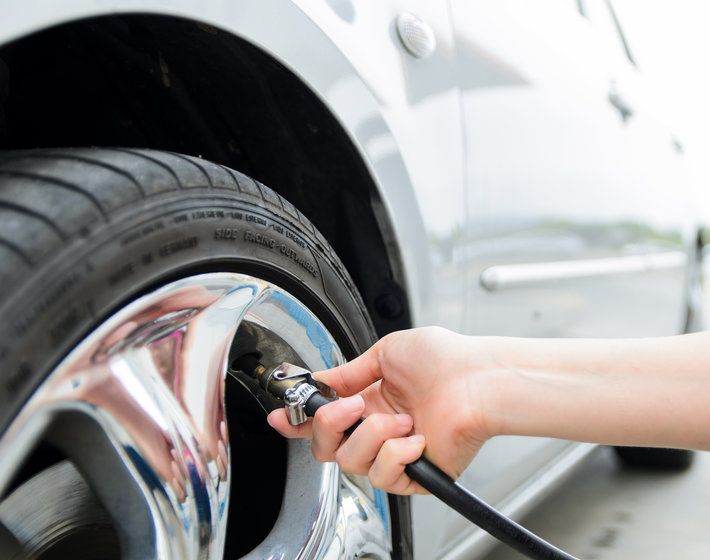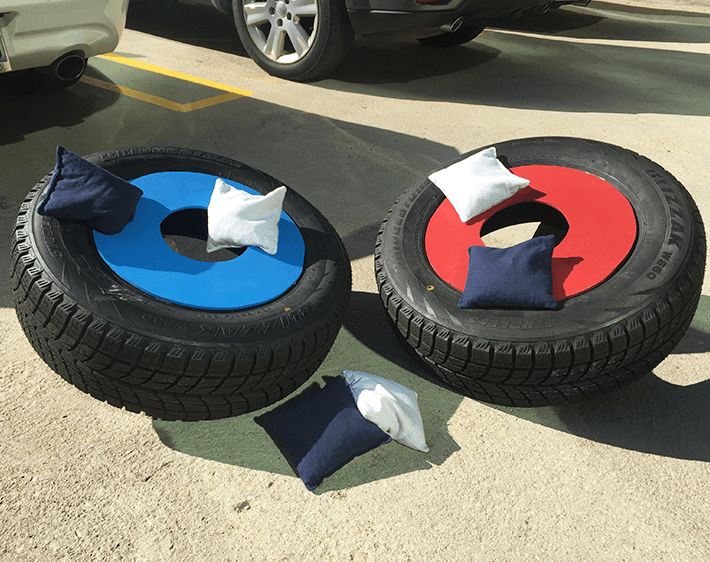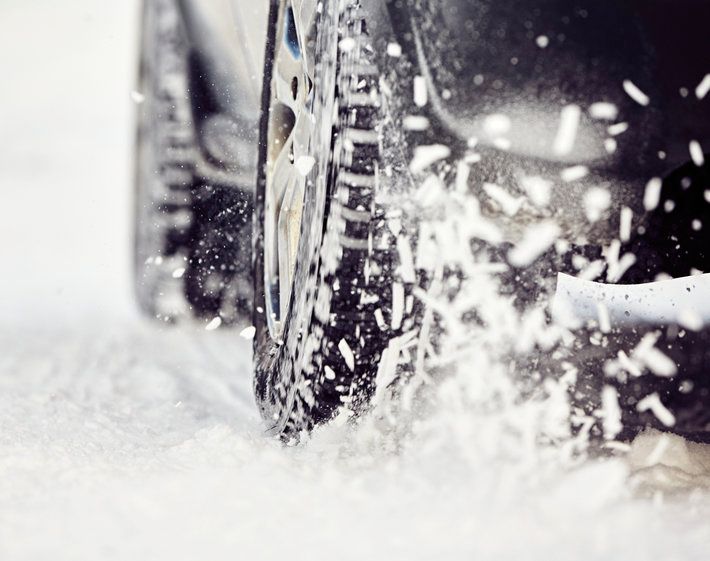Key Takeaways
- Nitrogen maintains tire pressure longer than air due to its larger molecular size, which reduces leakage.
- Using nitrogen can improve fuel economy and extend tire life by maintaining optimal pressure.
- Compressed air is more convenient and readily available, often at no cost.
- Mixing air and nitrogen in tires is safe but will reduce the benefits of nitrogen inflation.
When it comes to your trusty vehicle, you’re constantly asking important questions like, "Is it time for an oil change? Do my tires need to be rotated?" Those are both important questions, but here's another one to consider: "Should my tires be filled with nitrogen or air?" Nitrogen has become a popular choice for many drivers, but it may not be right for everyone. Learn more about the nitrogen vs. air debate to make the best decision for your vehicle.
The Nitrogen Advantage
The most notable advantage of nitrogen-filled tires deals with tire pressure, which you already know is crucial for keeping your tires in good shape. Nitrogen molecules are larger and slower moving than those of compressed air. Because of this, nitrogen won't seep out of your tires as quickly as air will, helping to maintain proper pressure for a longer period of time.
The benefits of proper tire pressure are numerous. Keeping the correct air pressure in your tires helps them last longer, helps your car handle better, and could even help maximize your fuel economy. Under/over-inflated tires are more difficult to handle, and increase your risk of a tire blowout.
Simply put, using nitrogen in your tires can set you up for tire success, especially if you're not the type of driver who has the time or know-how to regularly check your tire pressure.
Still Wondering: What About Good Ol' Air?
There's nothing wrong with keeping your tires inflated with air. After all, drivers have been using compressed air successfully for years! Compressed air is easy to find and often free. Depending on where you go, it could also cost more and take longer for your tires to be inflated with nitrogen (especially the first time). When it comes to convenience and cost, compressed air is the clear winner.
A Common Question: Can You Mix Air & Nitrogen?
So you’ve decided to inflate your tires with nitrogen, but you notice your tire looks low while taking a long road trip. Nitrogen isn’t available at any of the nearby service stations. Do you keep driving on a low tire or top if off with air? Top it off! It's never a good idea to drive on an under-inflated tire. Using compressed air in tires that have previously been filled with nitrogen will not harm your tires. While mixing the two won't result in an adverse chemical reaction, it will dilute the purity of the nitrogen and lessen its effectiveness.
The Decision: Proper Tire Pressure Trumps Everything
In the nitrogen vs. air debate, there's not necessarily a right or wrong answer. Whether you choose to fill your tires with nitrogen or compressed air, the most important aspect of tire maintenance is maintaining proper tire pressure. Tires that are properly inflated tend to wear more evenly, handle better, improve the fuel economy of your vehicle, and last much longer. Get started by finding the recommended tire pressure for your specific vehicle. Head to our Recommended Tire Pressure page and select your vehicle make, model, and year from the drop-down menu. We’ll tell you exactly what you need to know!
Want to keep learning about nitrogen inflation in tires? Talk with a technician at your local Firestone Complete Auto Care.



